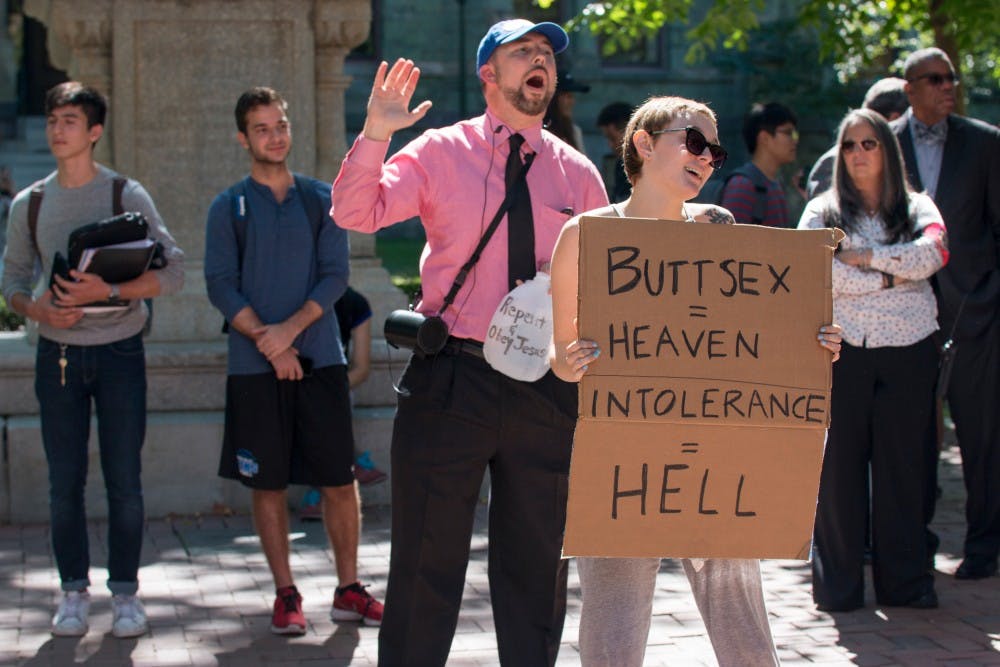Promoting free speech at a school of Penn’s size can be difficult when different student and community groups are constantly holding events and protests around campus.
That’s where the Committee on Open Expression and the Open Expression Observers come in.
The Committee on Open Expression was founded in the late 1960s in response to Vietnam War protests. The committee — which has included faculty, student, administration and staff representatives since its inception — created a set of guidelines to protect open expression on campus.
The guidelines, according to Associate Vice Provost for Student Affairs Hikaru Kozuma, have remained almost the same in the last 50 years and aim to prevent students from “unreasonably interfering with activities of other persons,” among other things.
This “interference” could include impeding free movement in or out of buildings, or even silencing others in an open forum.
Issues of open expression have been especially visible lately. Open Expression Observers attended protests on College Green by anti-LGBTQ preachers who told students they were bound for hell.
The Open Expression Observers are faculty and staff volunteers who attend meetings and events where free expression might be violated. These observers help de-escalate confrontations and enforce the guidelines set forth by the Committee on Open Expression.
“We are there just in case things escalate to a level when it feels like the event itself feels like it is going to be disrupted or when individual’s thoughts cannot be expressed,” Kozuma said. “We want to make sure students aren’t always on their own trying to work it out [in a] contentious way.”
When violations to the Open Expression Guidelines occur, warnings are given first. Then, if the problem isn’t resolved, they can call security and contact the Office of Student Conduct.
College sophomore Justin Bean, who is a student representative on the Committee on Open Expression, stressed how important it was to have Open Expression Observers on campus at a time when free speech is often being silenced.
“The primary reason I’m passionate about free speech and why I’m involved with the Open Expression Committee is because, in such a highly polarized world, free speech and tolerance of views are essential to learning and freedom,” Bean said. “Students on college campuses especially feel that just because they are offended by something it doesn’t have a right to be said or heard. I disagree with this 100 percent. The only thing you get when silencing people you disagree with is further polarization.”
While most students agree that Penn should foster a tolerant environment, some argue that the Open Expression Observers have unfairly protected hate speech.
“Its entirely reasonable for the university to have these advisers in general, because I think that free speech on campus is important, but I don’t think that the university should be dedicating any recourses to protecting hate speech,” College sophomore John Matthews said. “The language of these protesters the other day about gay people burning in hell was directly harmful to the LGBT community on campus because it’s a threat of eternal damnation.”
Kozuma said that the Open Expression Observers would not tolerate hate speech, but drew this distinction only when “an actual threat of harm” was delivered.









